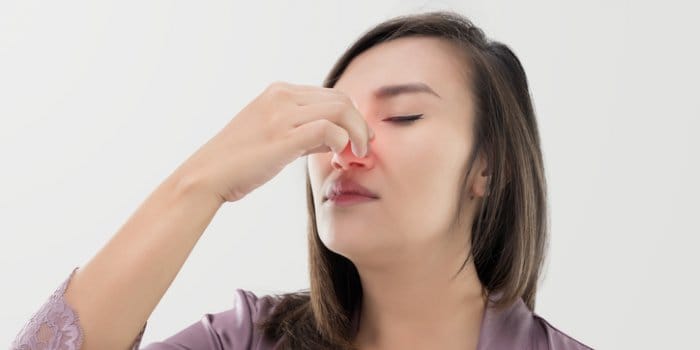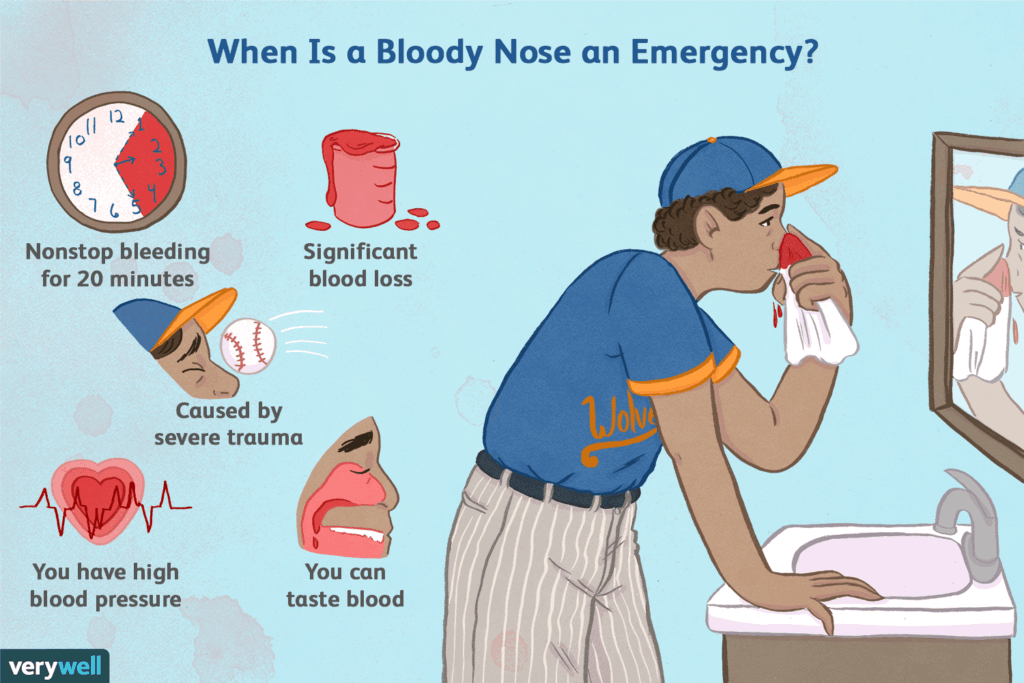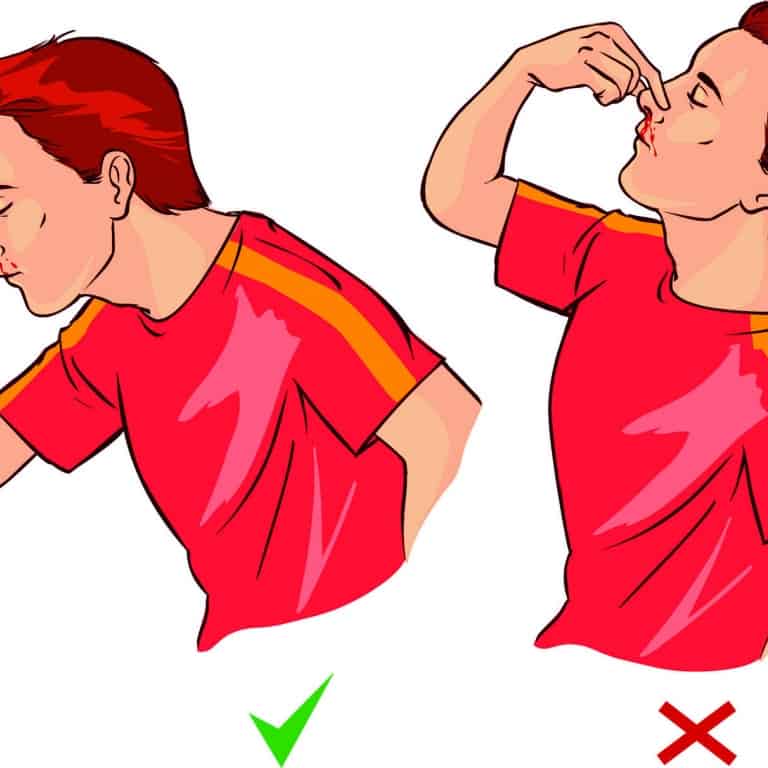Nosebleed as the term implies means bleeding from the nose. It is medically called epistaxis. Nosebleed is a common medical condition because of two factors: it is a protruding organ on the face with rich blood supply. If there is a large amount of bleeding from the nose, you can feel weak and faint.
CAUSES OF NOSEBLEED:
1. Dry nasal membranes (inner part of the nose) like during harmattan
2. Nose picking: This is when you rub your finger inside your nostril(s). This is the commonest cause among children.
3. Trauma
4. Medications: There are some medications that can make you bleed easily from any part of the body especially nose e.g. Aspirin, clopidogrel, warfarin
5. High blood pressure: One of the symptoms of high pressure is nosebleed
7. Upper respiratory tract infections: This is when infection affects the nose and throat.
8. Bleeding problems otherwise called coagulation disorder in which some proteins required for control of bleeding are missing in the body.
9. Growth or tumour in the nose like nasal polyp.
HOW TO STOP NOSEBLEED AT HOME
Most of the time, nosebleed can be taken care of at home, without the intervention of a doctor. As first aid when your nose bleeds, observe the following step-by-step orders:

- Stay calm! Sit up and don’t lie down
- Lean your head forward slightly with the head tilted forward. This prevents the blood from running to the back of the throat or sinus which can make you inhale blood and cause aspiration.
- Spit out any blood collection in your mouth and throat.
- Blow any blood clots out of your nose. Do this gently PLEASE. Blood might slightly rush out after this. Do not panic.
- Pinch your nostrils closed. Use your thumb and index finger to hold your nostrils closed for 5 to 10 minutes while you breathe through your mouth. This puts pressure on the part of your nose that’s bleeding and can make the blood stop flowing.
- Do not stuff anything into your nostril like tissue or clothes.
- Apply wrapped ice in a towel to nose and cheeks afterwards.
- Apply nasal spray like oxymetazoline (otrivin). Do not use this nasal spray for too long as it can make bleeding worse. If you are hypertensive, do not use this nasal spray.
- Avoid hot liquid for the next 24hours
- If you have to sneeze, do that with your mouth opened. This helps to reduce the pressure within your nasal cavity that can cause more bleeding.
WHEN SHOULD I GO TO THE HOSPITAL?

Go to the hospital if-
- The bleeding is in a child
- The bleeding is much and uncontrollable
- You feel dizzy or fainted
- If the bleeding persist for more than 20 minutes.
- You feel weak during or after the bleeding
- The bleeding is due to accident
- The bleeding is recurring
- There is fever and headache
INVESTIGATION AND TREATMENT
Your doctor might examine you for high blood pressure and examine your nose. He might also make a request for some blood investigations.
The treatment option depends on the cause. Your doctor will determine the appropriate modality for you.

Dr. Adeyemo Olusola is a medical graduate of Olabisi Onabanjo University, Ogun State, Nigeria along with certificate in advanced diploma in Principles of Nutrition, Management and Leadership, Dublin and Certificate in Global Health from London School of Hygiene and Tropical Medicine. In addition to his numerous certifications, he is a certified Telemedicine Physician from Harvard Medical School, USA. He is an avid reader of books from different oases of life, expert in data analysis. “So many a time, I have seen people die avoidable death because of lack of knowledge or information, falling victim of fate. There is then a necessity laid on us to help arm our society to the teeth, as a healthy society cannot be detached from an informed one. Hence, there is need for healthgist.net. We hope you will have a wonderful stay on our website.”

